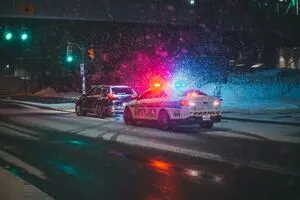If your car crashes, do you need to call the police for a car accident? The simple answer is yes. The answer to the question of whether should you call the police after a car accident does not depend on the nature of the accident. Whether you have been in a minor harmless collision or met a serious accident, you should always report it to the police.
In this article, you will understand the reasons to call the police after a car accident. We will address the important questions about should you always call the police after a car accident, when to call the police for a car accident, and how to call the police for a car accident.
Our experienced car accident lawyers at Royce Injury Lawyers advise you to call the police for a car accident, even if it is a minor collision. Learn if you should report a minor car accident, how to call the police for assistance, and when it’s necessary to involve law enforcement. Stay informed!
Car Accident Laws in Kansas City
Do you have to call police after car accident in Kansas City? There are two types of car accident laws in Kansas City that determine whether you should be calling the police or not. They are reportable and non-reportable accidents.
Reportable car accidents
- The first check is whether an accident is reportable is to check if it resulted in some injuries. If there are injuries, minor or severe, you should report the accident to the police.
- The second check is ensuring no property damage above the worth of $1000 or more happened. If there is property damage above the prescribed limit, you must report the accident.
- The third check is to ensure there are no fatalities. If someone has died in the accident, there is no question that the accident needs to be reported to the police,
- The fourth check is if there is a suspicion of DUI, the accident must be reported to the police.
Non-Reportable car accidents
- The first check is “no injuries”.
- The second check is “no fatality”
- The third check is that the property damage is minor or not exceeding $1000. Furthermore, the accident happened on private property of a similar nature also does not need to be reported to the police.
The Pros of Having Police Present at the Accident Scene
The primary benefit of having police present at the accident scene is that they will record the occurrence in a concise police report that is an essential evidentiary document when you file an insurance claim for the accident or bring a lawsuit in injury court. They also take the statements of the parties in the accident and eye-witnesses (if any) and provide emergency medical assistance to the injured.
Should I File an Accident Report even if the Police are Absent?
If the police are absent from the accident site, you have to analyze the nature of the accident to determine whether you should report it or not. The easiest way is to see if the accident is reportable or non-reportable. Minor injuries, accidents, and property damage that amount to less than $1000 can be settled between the parties outside court, and as such, you don’t need to report it to the police. However, for accidents that result in considerable injuries, fatality, and significant property damage, you should report them to the police if they are absent from the accident site.
Self-Reporting a Crash: What to Do When the Police Fail to Arrive
If the police have failed to arrive at the accident scene, you can still report it. You will need to:
- Note down the names, addresses, phone numbers, license numbers, number plates, etc., of all the parties involved and impacted in the accident.
- Note down the names, addresses, and phone numbers of eyewitnesses (if any) and take an audio recording or write down their statements.
- Take pictures and videos of the accident for the record.
- Write down your version of the accident details and occurrence as soon as possible while it is still fresh in your memory.
How Does Submitting a Crash Report Influence the Insurance Claims Process?
A crash report aids insurance companies to determine the extent of your fault and contribution to the accident. This helps them to estimate how much coverage to offer to you. If you don’t have a crash report and you have suffered severe injuries, the insurance companies will try to deflect them as less severe injuries to reduce the coverage as much as possible. A crash report gives a true and concise account of the injuries you have suffered at the onset of an accident, and insurance companies cannot deflect it.
Consequences of Not Filing a Police Crash Report
Not filing a police crash report can have far-reaching consequences. As discussed earlier, a police crash report is crucial in an insurance claim as well as in an injury claim if you want to pursue legal action later. In both cases, a police crash report serves as one of the primary sources of evidence to give a proper account of the accident, the parties involved, and the extent of fault of each party in the accident. Contents of a police report contain crucial information to determine the damages and compensation amount in injury court and the coverage amount with the insurance companies.
In a nutshell, in a car accident, when to call the police can be a baffling question. If you have been in a reportable accident, it is always advisable to consult an expert injury attorney to weigh your options before you accept any offer made by your insurance company. Royce Injury Lawyers are always ready to help you! Book a free consultation today!
- Key Facts About Missouri’s No Pay No Play Law - 28th May 2025
- Understanding Taxes on Personal Injury Settlements - 23rd May 2025
- Navigating Your Rights After a Car Crash While Pregnant - 21st May 2025


